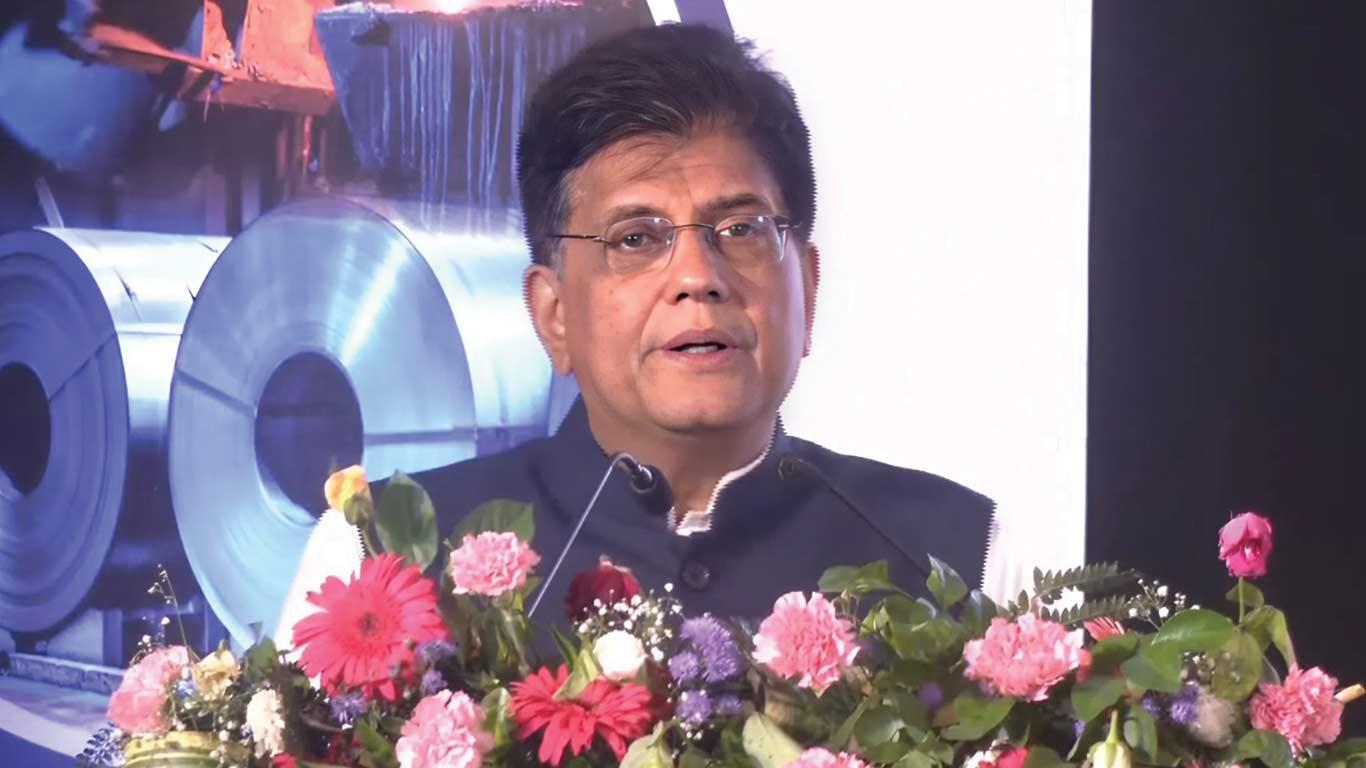Steel Conclave 2025: Goyal Calls For Strengthening Domestic Supply Chains & Cutting Imports
He urged the sector to examine its import–export profile, explore opportunities for import substitution, and work with domestic supply chains to reduce external dependence.
Cautioning against predatory pricing by certain countries, he said self-sufficiency would safeguard the industry's long-term viability and strengthen Atmanirbhar Bharat.
Highlighting the government's ongoing trade negotiations, the Minister said that Free Trade Agreements (FTAs) with several countries would open new opportunities for Indian steel in global markets.
He noted that 'melt and pour' provisions have been included in trade frameworks to prevent low-cost steel being routed through third countries, thereby ensuring fair competition for domestic producers.
Goyal also stressed the importance of self-reliance in capital goods manufacturing, pointing out India's continued dependence on imported equipment.
Encouraging the steel industry to venture into domestic production of capital goods, he said such efforts would create new business opportunities and support the country's broader goal of industrial self-sufficiency.
Speaking on future growth areas, the Minister identified prefabricated steel structures as a cost-effective solution for urban housing and infrastructure, particularly in cities such as Mumbai.
He said prefabrication can lower financing costs, speed up project execution, and improve housing quality. He emphasised that its adoption should be driven by business merit rather than regulation.
The Minister also highlighted shipbuilding as a high-potential sector for the steel industry. With established private shipyards, advanced welding capabilities, and marine-grade steel production, India, he said, is well placed to expand shipbuilding, which could generate 10–12 million jobs.
Discussions with the Ministry of Shipping are underway to explore policy changes that would strengthen the sector.
Reiterating the centrality of steel to India's growth, Goyal said the industry plays a critical role across infrastructure, transport, defence, and even space and medical devices.
He outlined the government's roadmap for expanding capacity, including a target of exporting 50 million tonnes of steel in the coming years, and assured industry support on challenges such as raw material costs and access to iron ore.
On the policy front, the Minister linked growth prospects to recent cuts in GST rates, which he said would boost consumption demand, spur investments, and indirectly raise steel demand through increased activity in logistics, housing, and automobiles.
He added that FTAs with the European Union and the UK are being advanced, while the agreement with the EFTA bloc is set to take effect from 1 October.
(KNN Bureau)
Legal Disclaimer:
MENAFN provides the
information “as is” without warranty of any kind. We do not accept
any responsibility or liability for the accuracy, content, images,
videos, licenses, completeness, legality, or reliability of the information
contained in this article. If you have any complaints or copyright
issues related to this article, kindly contact the provider above.
Most popular stories
Market Research

- Japan Buy Now Pay Later Market Size To Surpass USD 145.5 Billion By 2033 CAGR Of 22.23%
- BTCC Summer Festival 2025 Unites Japan's Web3 Community
- GCL Subsidiary, 2Game Digital, Partners With Kucoin Pay To Accept Secure Crypto Payments In Real Time
- Smart Indoor Gardens Market Growth: Size, Trends, And Forecast 20252033
- Nutritional Bar Market Size To Expand At A CAGR Of 3.5% During 2025-2033
- Pluscapital Advisor Empowers Traders To Master Global Markets Around The Clock






















Comments
No comment